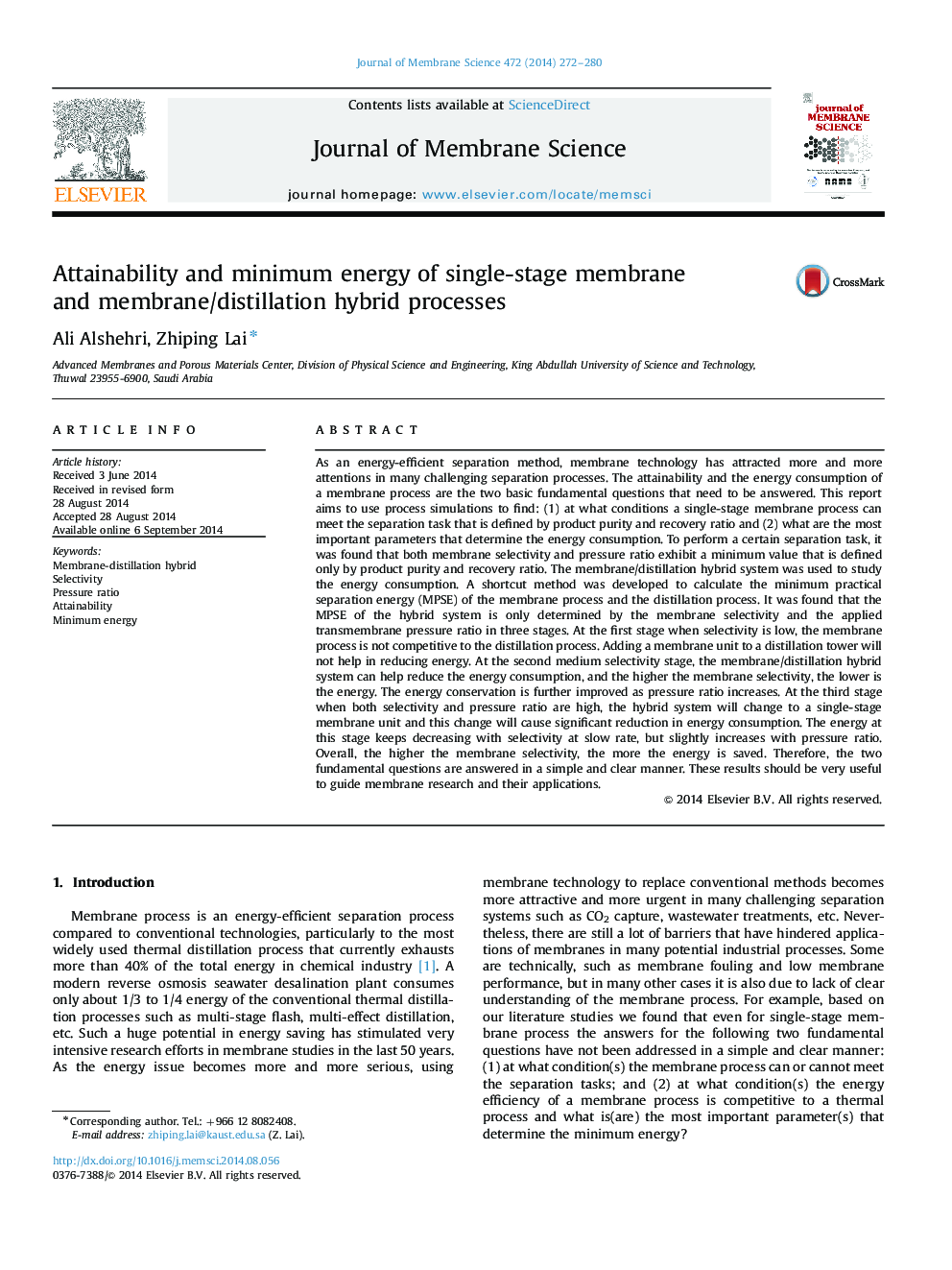| کد مقاله | کد نشریه | سال انتشار | مقاله انگلیسی | نسخه تمام متن |
|---|---|---|---|---|
| 633265 | 1456027 | 2014 | 9 صفحه PDF | دانلود رایگان |
• Selectivity and pressure ratio are the two membrane operation boundaries.
• Parallel configuration is the superstructure of membrane-distillation hybrid systems.
• The minimum energy of a single-stage membrane is mainly determined by selectivity.
As an energy-efficient separation method, membrane technology has attracted more and more attentions in many challenging separation processes. The attainability and the energy consumption of a membrane process are the two basic fundamental questions that need to be answered. This report aims to use process simulations to find: (1) at what conditions a single-stage membrane process can meet the separation task that is defined by product purity and recovery ratio and (2) what are the most important parameters that determine the energy consumption. To perform a certain separation task, it was found that both membrane selectivity and pressure ratio exhibit a minimum value that is defined only by product purity and recovery ratio. The membrane/distillation hybrid system was used to study the energy consumption. A shortcut method was developed to calculate the minimum practical separation energy (MPSE) of the membrane process and the distillation process. It was found that the MPSE of the hybrid system is only determined by the membrane selectivity and the applied transmembrane pressure ratio in three stages. At the first stage when selectivity is low, the membrane process is not competitive to the distillation process. Adding a membrane unit to a distillation tower will not help in reducing energy. At the second medium selectivity stage, the membrane/distillation hybrid system can help reduce the energy consumption, and the higher the membrane selectivity, the lower is the energy. The energy conservation is further improved as pressure ratio increases. At the third stage when both selectivity and pressure ratio are high, the hybrid system will change to a single-stage membrane unit and this change will cause significant reduction in energy consumption. The energy at this stage keeps decreasing with selectivity at slow rate, but slightly increases with pressure ratio. Overall, the higher the membrane selectivity, the more the energy is saved. Therefore, the two fundamental questions are answered in a simple and clear manner. These results should be very useful to guide membrane research and their applications.
Membrane selectivity and pressure ratio are the two most important parameters to define the operation region and the minimum energy consumption of single-stage membrane processes.Figure optionsDownload high-quality image (295 K)Download as PowerPoint slide
Journal: Journal of Membrane Science - Volume 472, 15 December 2014, Pages 272–280
